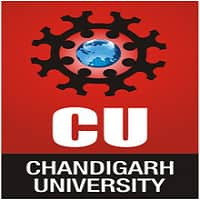UPES B.Sc Admissions 2025
Ranked #46 amongst Universities in India by NIRF | 1900+ Students Placed | 94% Placement | 633+ Recruiters | Last Date to Apply: 28th April
B.Sc. Economics is an undergraduate specialised program in Economics. The duration of the program is three years. The minimum required qualification to enrol in B.Sc. Economics is a successful completion of 10+2 in physics, chemistry, and mathematics from a recognised board.
Economics courses provide students with the skills and knowledge to establish a successful career in the same. There are numerous career options for students enrolled in the B.Sc. degree for this particular course such as chartered accountant, actuary, investment banker, bank clerk, bank PO, certified management accountant, stockbroker, equity analyst and business journalist.
The candidates interested in pursuing B.Sc Economics course must appear for CUET UG, which is the most popular exam for different specialisations in B.Sc degree. Many institutes conduct their own entrance exam, for admissions. The top colleges are ACFA Jalandhar, BUCC Batala, and BFIT Dehradun. The average salary of an Economist in India is Rs. 16.1 LPA.
| Particulars | Values |
|---|---|
Degree Name | B.Sc. Economics |
Degree Type | Undergraduate |
Degree Duration | Three years |
Entrance Exams | NPAT, SET, CUET UG |
Eligibility Criteria | 10+2 in Physics, Chemistry and Mathematics |
Admission process | Entrance/Merit |
Fees for the entire duration | Rs. 5.8 LPA |
Average Salary | Rs. 10,190 to Rs. 2.08 Lakhs |
Job profiles | Investment Banker, Economist, Auditor, Financial Analyst, Risk Analyst, Chartered Accountant, Actuary |
Top recruiters | Goldman Sachs, Morgan Stanley, JPMorgan Chase, Bank of America Merrill Lynch, Deutsche Bank |
The eligibility criteria for enrollment to B.Sc. Economics varies from college to college. Candidates should check the eligibility requirements of the course before applying for admission to the chosen institute. We have provided below the minimum eligibility criteria set by most of the colleges for the B.Sc Economics course.
Ranked #46 amongst Universities in India by NIRF | 1900+ Students Placed | 94% Placement | 633+ Recruiters | Last Date to Apply: 28th April
Apply for Integrated M.Sc Biotechnology (5 Years, after 10+2) @ VIT Bhopal University | H-CTC 52 LPA
The admission process for enrollment in B.Sc. Economics varies from university to university. Candidates are advised to follow the admission procedure carefully, the admission details are available on the official website of the institute. Mentioned below are the generic admission guidelines for the B.Sc Economics course.
There are numerous B.Sc. Economics entrance examinations that various universities conduct to select eligible candidates to provide admissions. Mentioned below are the popular entrance exams required for the B.Sc Economics course.
NPAT: NPAT stands for NMIMS Programmes After Twelfth. It is conducted by Narsee Monjee Institute for Management Studies for admissions in BBA, B.Com, and B.Sc. Economics and B.Sc. Finance courses.
SET: SET stands for Symbiosis Entrance Test. It is a university-level entrance examination conducted to provide admissions in various academic courses running in Symbiosis University.
CUET UG: Common University Entrance Test UG (CUET UG) is a national-level entrance examination conducted by the National Testing Agency (NTA) for admissions to various undergraduate degree programmes.
Cut off is the minimum score limit announced every year by colleges and universities to provide admissions to eligible students. Candidates who score within the cut-off limit are provided with enrollment in the respective academic courses. The cutoffs are released annually by every institute.
Individuals aspiring to pursue a B.Sc Economics course need to develop few skills to enhance their knowledge and efficiency both academically and professionally such as Good Communication skills, Time Management, Problem-solving skills and Data Analysis. Below, we have listed a few more skills required for a B.Sc Economics course.
The academic curriculum of B.Sc. Economics varies from institute to institute. The B.Sc. The economics syllabus covers major subjects such as Calculus, Econometrics, Environmental Economics, Urban Economics, Banking, and Finance. We have provided below the syllabus of the Gokhale Institute of Politics and Economics.
Year 1 | |
Introduction to Calculus for Economics | Principles of Microeconomics |
Introduction to Statistics using Spreadsheets and SPSS | Intermediate Statistics Using Spreadsheets and SPSS |
Basic Financial Methods | Intermediate Calculus for Economics |
Data Management | Business Communication |
Principles of Economics | Introduction to Management & Cost Accounting |
Presentation and Communication Skills | Introduction to Sociology |
Foreign Language - 1 (French and Chinese) | Foreign Language - 2 (French and Chinese) |
Year 2 | |
Demography | Marketing Theory and Pricing Strategies |
Principles of Macroeconomics | Intermediate Macroeconomics |
The Interplay of Economic Theory and Data | Econometrics with Case Studies using R and Python |
Introduction to theory of econometrics | The Indian Economy: 1947-1991* |
Operations Research | Development Economics |
Intermediate Microeconomics | Research Methodology using Real World Projects |
Foreign Language - 3 (French and Chinese) | Foreign Language - 4 (French and Chinese) |
Year 3 | |
Advanced Analytics (ML,DL, AI and NN) Using R and Python | Strategy and Game Theory |
Pure Theory of Trade | Behavioral Economics |
Urban Economics | Schools of Economic Thought |
The Indian Economy: 1991 - Present Day | Energy Economics |
Banking and Finance | Environmental Economics |
Analytics Project Work | Foreign Language |
The B.Sc Economics fee structure varies from college to college. Institutes rely on academic fees to provide sufficient facilities to students and pay salaries to staff. Generally, a private institute is more expensive than a government institute. The average academic fee of a B.Sc. Economics ranges from Rs. 10,190 to Rs. 2.08 Lakhs.
B.Sc Economics offers a wide scope for the graduates, they receive training to perform various financial operations. This includes analysing statistical report patterns to predict future trends, identify risks, and assist businesses in making effective decisions to ensure profitability.
There are many career options available for BSc Economics graduates in the finance sector such as Accountant, Auditor, Economist, Investment Banker, Stock Market Analyst, and risk management analyst. For those interested in an academic career as a teacher or lecturer, pursuing an MSc, or Ph.D. in Economics are very good options.
There are numerous career options for B.Sc. Economics graduates. The career preference depends on the candidate’s interests and future goals. We have provided below major job profiles for aspiring individuals enrolled in B.Sc. Economics.
Investment Banker - An investment banker is a finance professional who is employed by financial institutions with the responsibilities of raising capital for government, corporate and other entities. He or she facilitates transactions that are usually large and complicated including acquisition, merger, and sales for clients.
Financial Analyst - A financial analyst is responsible for performing financial forecasting, analysing, and creating financial models to help the employing organisation and clients make effective business decisions.
Auditor - An auditor is a finance professional responsible for managing the accounts of an employing organisation. He or she ensures the validity of financial records. He or she helps in abiding by the risk involved in the investment decisions.
Statistician - A statistician is responsible for creating surveys, opinion polls, and surveys. He or she collects and organises data. A statistician studies the patterns in the data to predict future trends based on past practices. He or she utilises the information to help businesses remain competitive
B.Sc in Economics opens up a wide range of career options for the graduates, the course also equips students with the skills needed for various job roles in different sectors such as Banking, Finance, Insurance, Stock Market, and Sales and Marketing. Additionally, attractive opportunities can be found in government organisations, media companies, and investment firms.
The salary offered to B.Sc. Economic graduates vary depending on candidates' skills and knowledge. Some factors play a key role such as the size and location of the employing organisation. Mentioned in the table below is the average salary of some of the top career options in the field of B.Sc Economics.
| Job Profile | Average Salary |
|---|---|
Investment Banker | Rs. 17.8 LPA |
Economist | Rs. 16.1 LPA |
Financial Analyst | Rs. 5.8 LPA |
Statistician | Rs. 5.8 LPA |
Source: Ambition Box
There are many institutes offering B.Sc Economics courses, the admission to these institutes is either based on the entrance exam or direct admission based on the candidate’s prior academic performance. Mentioned below are the top B.Sc Economics colleges in India.
| Colleges | Fees |
|---|---|
Rs. 88,230 | |
Rs. 1.40 Lakhs | |
Rs. 69,000 | |
Rs. 1.15 Lakhs | |
Rs. 2.08 Lakhs | |
Rs. 66,730 | |
Rs. 10,190 | |
Rs. 14,010 | |
Rs. 98,640 | |
Rs. 32,100 |
There are both government as well as private colleges in India that offer B.Sc. Economics. The academic fees of private colleges are usually higher as compared to government colleges. Below, we have provided a list of top private B.Sc. Economics colleges in India.
| Colleges | Fees |
|---|---|
Adarsh Bhartiya College Pathankot | Rs. 88,230 |
ACFA Jalandhar | Rs. 1.40 Lakhs |
Baba Budha College | Rs. 69,000 |
Banarsi Dass Arya Girls College | Rs. 1.15 Lakhs |
BLM Girls College Nawanshahr | Rs. 2.08 Lakhs |
There are numerous government B.Sc. Economics colleges in India are located at various places. We have provided below a list of top government B.Sc. Economics colleges in India. The syllabus of the course, including fee and facilities provided to students in these colleges may vary.
| Colleges | Fees |
|---|---|
Amardeep Singh Shergill Memorial College | Rs. 66,730 |
Asansol Girls College Asansol | Rs. 10,190 |
Banwarilal Bhalotia College | Rs. 14,010 |
BUCC Batala | Rs. 98,640 |
Bebe Nanaki University College | Rs. 32,100 |
B.Sc in Economics offers a complete understanding of economic principles, providing a strong foundation for careers in finance, banking, and public policy. The course also equips students with analytical skills, preparing them for diverse opportunities in the global economy.
Individuals are required to complete a 10+2 in physics, chemistry and mathematics to enrol in a B.Sc. Economics course.
The average fee for B.Sc. Economics ranges from Rs. 50,000 to Rs. 100,000
The average salary offered to B.Sc. Economics graduates range from Rs. 200,000 to Rs. 500,000 per annum.
We have provided below the major career options for B.Sc. Economics graduates: Accountant, Financial Analyst, Chartered Accountant, Risk Analyst, Actuary, Statistician, and Economist.
We have provided below a list of top B.Sc. Economics recruiters: Goldman Sachs, Morgan Stanley, JPMorgan Chase, Bank of America Merrill Lynch, and Deutsche Bank.
The average salary of an accountant is Rs. 249633 per annum, according to payscale.com.
The average salary of an auditor is Rs. 487962 per annum, according to payscale.com.
To apply for the Integrated B.Sc.-M.Sc. Forensic Science program at the National Forensic Sciences University (NFSU) through the National Forensic Admission Test (NFAT), follow these steps:
1. Visit the Official Website: Go to NFSU's admission portal.
2. Register an Account: Create a new account by providing your email address and setting a password
3. Complete the Application Form: Log in with your credentials and fill out the application form with accurate personal and academic details.
4. Upload Required Documents: Scan and upload necessary documents such as your photograph, signature, and academic certificates.
5. Pay the Application Fee: Submit the application fee online; the amount may vary, so refer to the official guidelines for the exact fee.
6. Submit the Application: Review all information for accuracy before submitting the form.
7. Download Confirmation: After submission, download and print the confirmation page for your records.
B.Sc Nursing is generally considered a better option than GNM (General Nursing and Midwifery) in terms of long-term career prospects, salary, and professional growth. While GNM is a diploma course of 3 years, B.Sc Nursing is a 4-year undergraduate degree that offers broader career opportunities. B.Sc graduates are eligible for higher education like M.Sc Nursing, hospital administration, and teaching positions, which are not directly accessible through GNM. Additionally, B.Sc Nursing holders are often preferred for government jobs and have better chances of promotion and salary hikes. For those aiming to work abroad, B.Sc Nursing is usually a requirement for licensing exams like NCLEX (USA) or HAAD (UAE), whereas GNM may not be directly recognized. Overall, B.Sc Nursing provides a more comprehensive and future-proof path in the healthcare field.
It is important to differentiate between general BSc programs and specific professional BSc programs like BSc Nursing. Let me help you clarify:
General BSc Programs:
BSc Nursing:
Recommendations:
In summary, while general BSc programs may offer admission based on merit, it's essential to verify the specific requirements of each college. And for BSc nursing, EAMCET is often a factor.
Hope this works.
Top Colleges Offering B.Sc. LL.B. in India
1. WB National University of Juridical Sciences (WBNUJS), Kolkata
2. Gujarat National Law University (GNLU), Gandhinagar
3. National Law Institute University (NLIU), Bhopal
4. Saveetha School of Law, Chennai
5. Manipal University, Jaipur
6. KIIT School of Law, Bhubaneswar
7. SOA National Institute of Law, Bhubaneswar
8. UPES, Dehradun
9. Amity Law School, Mumbai
10. JECRC University, Jaipur
Hi riya
https://admission.nfsu.ac.in/pdf/NTA%20ENTRANCE%20EXAM%20SYLLABUS%20(1).pdf
This is syllabus link
It including a mix of general aptitude and knowledge areas, as well as specific topics related to forensic science and mass communication for certain programs.
And as it is of 100 marks exam and every year competition increases so you have to score more than 85 for good government college.
Thanks

Ranked amongst top 3% universities globally (QS Rankings)

Ranked #1 Among all Private Indian Universities in QS Asia Rankings 2025 | Scholarships worth 210 CR

B.Sc (Hons) Admissions 2025 Now Open | Ranked Among the Top 100 Universities in the World by QS World University Rankings 2025 | Last Date: 28th Apr'25
#10 in India by NIRF Ranking | Institution of Eminence by Govt. of India | Scholarships Available
NBA Accredited | AICTE Approved | Use Code: Careers360 & Avail 50% Off on Application Forms | Last Date: 19th Apr’25
100+ Industry collaborations | 10+ Years of legacy